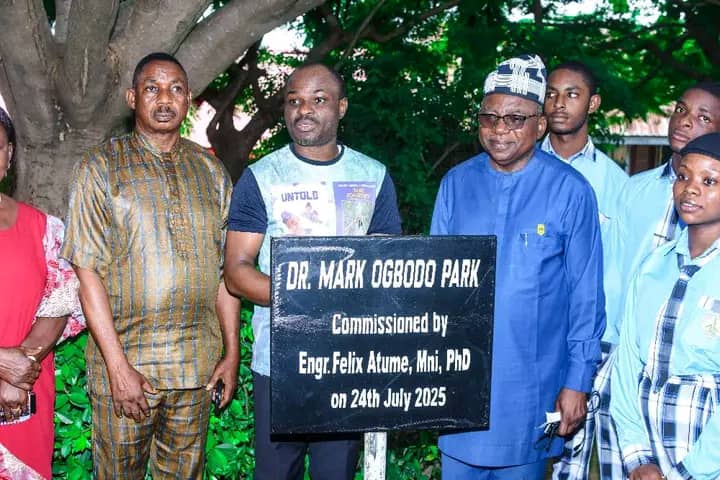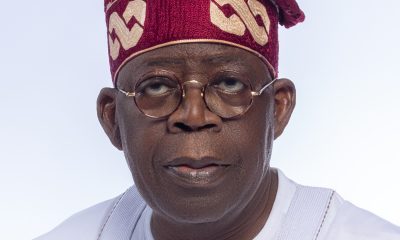NEWS
AU, ECOWAS Seek Global Compact inclusion of Voluntary Review

By Blessing Bature-Akpakpan, Abuja
As free movement among ECOWAS member states is a vital component of regional integration, most migratory movements taking place within the ECOWAS region are linked to employment and labour mobility, including seasonal, temporary and permanent migrant workers the ECOWAS commission, with support of the African union Commission, the regional UN network on Migration for the west and Central Africa and IOM has called in the Global Compact for the inclusion of a voluntary follow-up and review process.
Aissata Kane, senior regional advisor for sub-Sahara Africa, IOM made the call during the high-level consultation on the implemention, follow-up of the global Compact for Migration for the international Migration Review Forum 2022.
According to her, “the United Nations Economic Commission for Africa (UNECA), the African Union Commission (AUC), the International Organization for Migration (IOM) and the UN Network on Migration, are working together to support the implementation, follow-up, and review of the GCM in Africa Prior to the International Migration Review Forum.
She stated that the Regional Review of the GCM in Africa that took place at three levels – the national, sub-regional and regional/continental level4 -will be concluded on 1 September 2021 with a regional review report that will be one of Africa’s contribution to the International Migration Review Forum in 2022, In addition, ECOWAS can make a significant contribution to the International Migration Review Forum by leading the discussion among Member States on the implementation of the Global Compact for the West Africa Region.
“While migration in West Africa takes mostly place within the region, it encompasses a multi-faceted aspect, including economic migration to North Africa and Europe, irregular migration, forced displacements due to conflict, human rights violations, environmental change and natural disasters or climate related migration.
“The Global Compact for Migration is not only a range of objectives for all stakeholders to implement but rather a shared vision that migration can benefit migrants, their communities and countries, if well managed and people-centered.
“Let me remind you that the African Regional Review for the GCM implementation has just been concluded with great discussion among African States on how to achieve safe, regular and orderly migration. The report that has been issued very recently summarizes well how African member states are committed to all the GCM 23 Objectives.
“In the African continent, Regional Economic Commissions are important stakeholders in the implementation of the Global Compact for Migration as drivers of economic integration.
“The Regional Economic Commissions have been instrumental in implementing The Treaty Establishing African Economic Community, agreed to in 1991, in this beautiful city of Abuja where we gather together today, especially in terms of promoting free movement of people and capital.
“Allow me to recall that the Global Compact is a landmark multilateral document to catalyze and boost combined support and assistance for addressing legal and humanitarian challenges of migration and foster its positive social, cultural and economic dividends within and outside the ECOWAS region,” she said.
NEWS
Unique Secondary School Expands Outreach, Honors Ogbodo, Launches Scholarships

By David Torough, Abuja
Unique Secondary School Makurdi (USSM), a leading private educational institution in Benue State, continues to make significant strides in academic excellence and community impact.
In a bold move to increase accessibility and reward excellence, the school has unveiled a new examination centre in Oju Local Government Area, launched a scholarship scheme for families with multiple children in the school, and honoured a distinguished alumnus, Dr.
Mark Ogbodo, by naming a recreational facility after him.The newly inaugurated Dr. Mark Ogbodo Park was officially commissioned on July 24, during a colourful ceremony held at the school’s New GRA campus in Makurdi.
The event drew an impressive turnout of students, staff, parents, alumni, and dignitaries.
Chairman of Unique Schools and co-founder of USSM, Engr. Felix Atume led the commissioning, describing it as a tribute to dedication and impact.
Dr. Ogbodo, an author and founder of Lydia Memorial Hospital, Ugbokolo, was visibly moved by the honour.
In a social media post after the event, he wrote: “Who am I to deserve this great honour? What impact have I made on USSM? These thoughts flooded my mind as I stood speechless in awe.”
He praised the school leadership, particularly Principal Mr. Samuel Ortsega, and the Parent-Teacher Association (PTA) for the recognition.
Also unveiled at the event was a scholarship programme aimed at easing the financial burden on families with more than one child enrolled at USSM.
The initiative was met with excitement and gratitude from parents in attendance. Furthermore, the newly established Oju exam centre was widely applauded for eliminating the long travel often required for external examinations, especially for students living in remote areas.
Founded on September 1, 1998, by Engr. Atume and Mrs. Juliana Atume, a noted philanthropist, USSM has built a strong reputation for nurturing students through academic rigor and character development.
Originally a day school, it added a boarding facility in 2007 to cater to growing demand. Situated in a serene environment, the school provides a secure and conducive atmosphere for learning.
USSM is part of the larger Unique Schools family, which began with Unique Nursery and Primary School in 1995.
The secondary arm offers a comprehensive curriculum infused with entrepreneurial and vocational training in areas such as catering, fashion, cosmetology, and design—preparing students with practical skills for life beyond the classroom.
The school boasts modern infrastructure, including science laboratories, an ICT centre, a digital library, spacious classrooms, quality boarding facilities, a healthcare unit, and the expansive Engr. Felix Atume Hall. Recreational amenities include courts for basketball, volleyball, tennis, a football pitch, and indoor games like chess and scrabble.
In keeping with global trends, USSM has embraced digital innovations such as an online result-checking system and is planning an enhanced presence on social media.
The school runs a three-term calendar and prepares students for key national examinations including BECE, WAEC, and NECO.
Ambitious plans are underway to launch Unique Technical College, which will focus on technical and vocational education.
As the evening of July 24 transitioned into a celebratory dinner in honour of the 2025 graduating class, guests—including PTA members, parents, alumni, and staff—shared heartfelt goodwill messages. The PTA Chairman described the event as “unparalleled in the school’s history.”
Through initiatives like the Oju centre, new scholarships, and the celebration of alumni impact, Unique Secondary School Makurdi continues to set the benchmark for holistic and community-rooted education in Benue State.
Foreign News
Zelensky Announces New Draft Law on Anti-corruption Bodies after Protests

Ukrainian President Volodymyr Zelensky said he has approved the text of a draft law guaranteeing the freedom of two anti-corruption bodies in Ukraine – days after nationwide protests broke out over changes curbing their independence.
Kyiv’s Western partners had also expressed serious concerns over the legislation.
On Thursday, Zelensky seemed to backtrack, saying the new bill was intended to safeguard the independence of Ukraine’s National Anti-Corruption Bureau (Nabu) and Specialised Anti-Corruption Prosecutor’s Office (Sap), and to protect them from Russian influence.
He said the text of the bill was “balanced”, but did not provide any details.
The law passed earlier this week brought Nabu and Sap under the control of the prosecutor general, who is appointed by the president.
At the time Zelensky justified his decision to curtail the bodies’ powers by citing Russian influence. The day before, Ukraine’s security services had carried out searches and arrests targeting alleged Russian spies at the agency.
The passing of the legislation instantly sparked the largest protests since the start of Russia’s full-scale invasion in February 2022 in several cities across Ukraine, with many worrying the law would severely undermine the Nabu and Sap’s authority and effectiveness.
Thousands of people gathered in streets and squares across Ukraine, holding placards calling for the legislation to be vetoed.
Several commentators accused Zelensky of democratic backsliding. Their concerns were further exacerbated when Ukraine’s Western partners signalled their displeasure with the bill.
Ukraine has official EU candidate status and a spokesman for European Commission chief Ursula von der Leyen previously warned Kyiv that the rule of law and the fight against corruption were “core elements” of membership to the bloc.
On Thursday, the Commission said it “welcomed” the Ukrainian government’s decision to take action against the bill.
“We are working [with the Ukrainian government] to make sure that our concerns… are indeed taken into account,” the spokesman said.
Nabu and Sap were created in 2014-15 as one of the requirements set by the European Commission and International Monetary Fund to move towards a relaxation of visa restrictions between Ukraine and the EU.
Writing on Facebook, opposition MP Oleksiy Goncharenko noted Zelensky said that “the independence of anti-corruption institutions must be guaranteed.”
“First we take it away, and then we say that it must be guaranteed. So why was all this necessary?”
In his message on social media on Thursday, Zelensky did not acknowledge the protests or the backlash but said it was “important that we respect the position of all Ukrainians and are grateful to everyone who stands with Ukraine.”
NEWS
Why I Quit Banking for Music – CDQ

Nigerian rapper CDQ has revealed that he left a stable banking job to pursue his true passion, music.
In an interview, the hip-hop star shared that becoming a banker was a move to honor his late father’s wishes, but it wasn’t where his heart truly belonged.
“I quit my bank job.
I couldn’t tell my mother or any family member then. I left the house and went to stay with Masterkraft in the studio,” he said.CDQ admitted that while at the bank, he often found himself scribbling lyrics during work hours instead of focusing on his official duties.
The internal conflict eventually led him to a bold decision, quitting his job to chase a career in music.
According to him, even his close friend and producer, Masterkraft, was shocked when he learned about the decision. Interestingly, Masterkraft used to lend CDQ suits to wear to the bank.
“I told him banking isn’t my passion. I will probably just do it to make ends meet. But music is something that, whether it gives me a return or not, I’m still happy doing it,” CDQ added.
CDQ’s gamble paid off. He shot to fame in 2016 with his hit single “Indomie” featuring Masterkraft and Olamide.





























